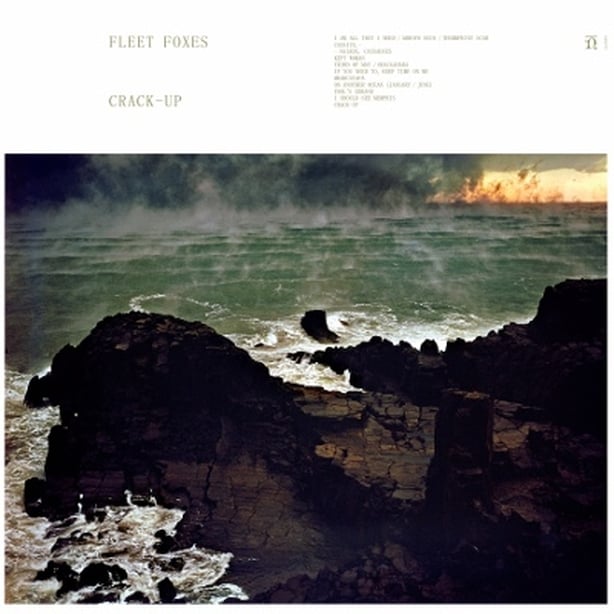Fleet Foxes make some grand and very beautiful gestures on their stately third album but it can be overly-complicated and wilful too
Fleet Foxes frontman Robin Pecknold went on somewhat of a philosophical and psychological walkabout after the rancorous gestation of the band’s last album, 2011's Helplessness Blues.
He enrolled in a post-graduate course in Columbia University and backpacked around Asia - short of communing with arctic whales, it was clear that Pecknold needed to create as much distance from major success as possible. Meanwhile, Fleet Foxes' drummer Josh Tillman left the band and reinvented himself as Father John Misty.
As very young and prodigiously talented multi-instrumentalists, the Seattle band had already earned quite a a reputation as seriously gifted visionaries and - in the process - spawned a whole new generation of bearded indie folksters in plaid shirts. The dangerous question remains - are Fleet Foxes partly to blame for inventing hipsters?
On Crack-Up, they return with a whole new set of questions after their sabbatical. Long, complex and mercurial, it can be a very challenging album indeed. However, it does have a lot of the high-borne purity of their stunning debut and the sense of spiritual longing of Helplessness Blues.
If those albums were almost religious experiences full of epiphanies and wide-eyed wonder at the beauty and power of nature, Crack-Up tries a little too hard to over-complicate things as it makes its stately progress as a prog folk concept epic.

There is a lot going on. Some songs have the hushed, confessional atmosphere of Leonard Cohen or Simon and Garfunkel before bursting into rude health unexpectedly. I Am All That I Need/Arroyo Seco/Thumbprint Scargoes through several different passages, from serene contemplation to sudden upheaval. Dense with instrumentation, sounds of nature and snatches of overheard conversations, it is typical of Crack-Up's restless and seeking nature.
Cassius, a song about the tragic deaths of young black Americans and also a meditation on the passing of Muhammad Ali, has all the dramatic sweep of Gershwin and ends with full orchestra in meltdown as oboes and piano clash, before ending abruptly and crashing straight into the deeply strange Naiads, Cassadies (nope, me neither).
The gorgeous If You Need To, Keep Time On Me has the hymnal quality of Fleet Foxes’ celebrated debut but that need for musical overload is back on Third of May/Odaigahara, which may very well be the centrepiece of this sprawling folk odyssey.
It’s a near nine-minute epic where whole baroque orchestras of folk instrumentation and electronic modulations build into maelstroms before slowly subsiding as Pecknold wrestles with his demons.
It is bracing and enveloping stuff but Crack-Up can also sound half-formed in places, shifting and oblique, and just when you think you’ve been lulled into hypnotised into a state of folked-up bliss, these Foxes dart down another forest run.
Sometimes it works brilliantly (I Am All That I Need/Arroyo Seco/Thumbprint Scar) but sometimes (I Should See Memphis) their need to cut songs off abruptly and chuck in extraneous and discordant found sounds is just wilfully obscure.
Like those first two albums, Crack-Up is akin to being very happily lost in the vastness of the American wilderness. Pecknold and Fleet Foxes have taken their own sweet time to unpack their thoughts and rearrange their lives for the better. They haven’t rushed things as they find a way to reconnect. You’ll be very glad they did.
Alan Corr @corralan


